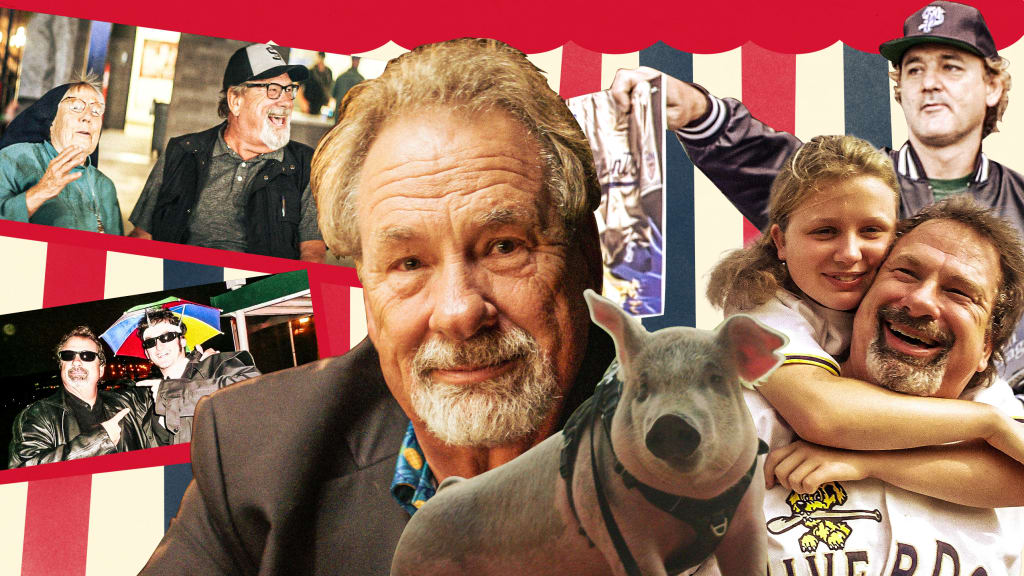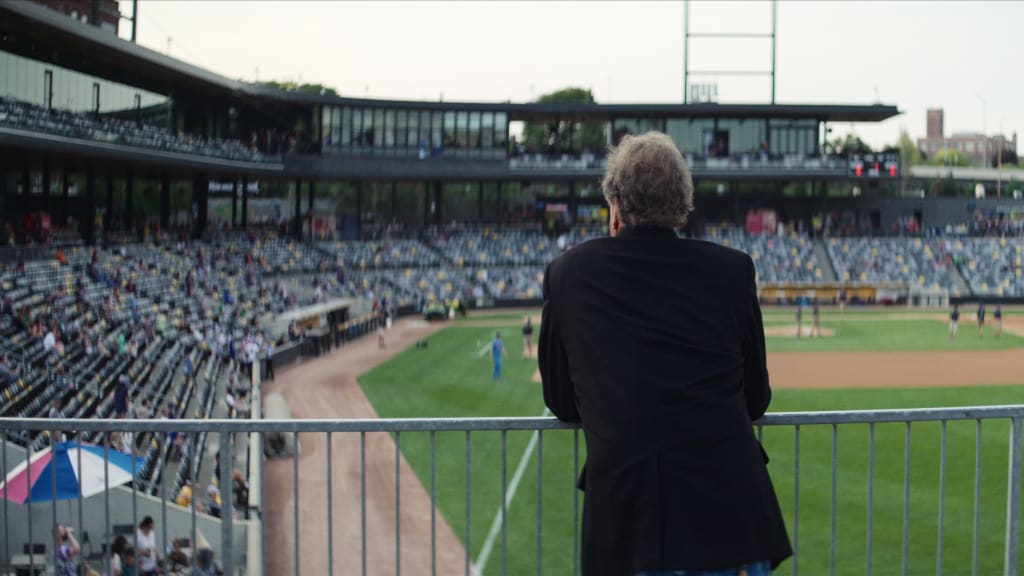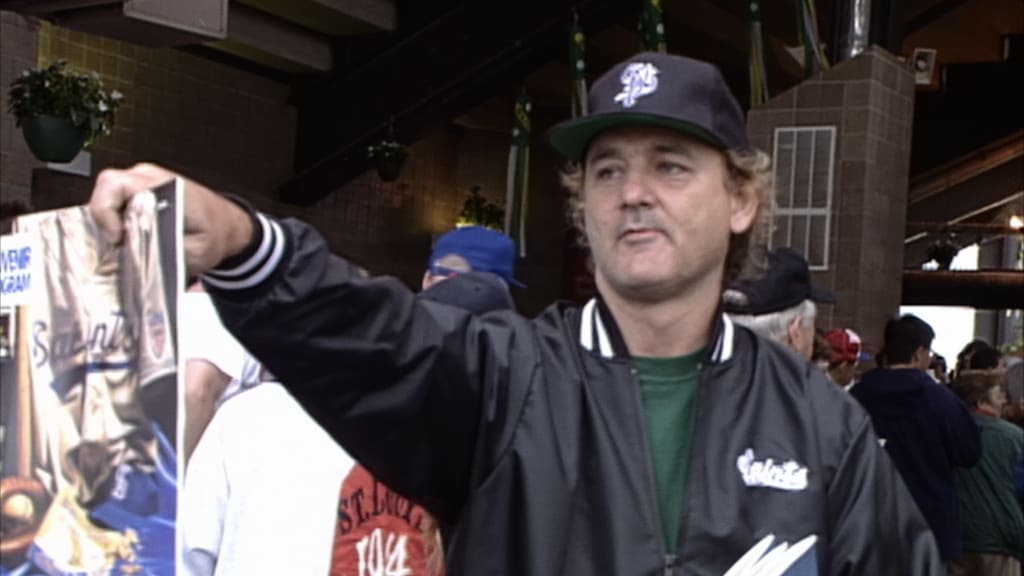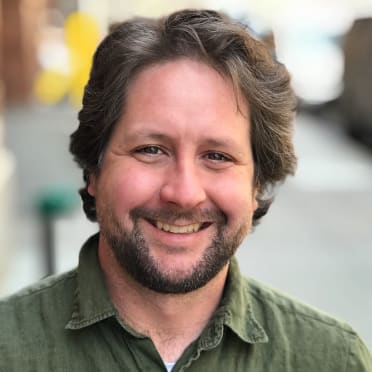It’s a familiar story: After flaming out spectacularly in the Major Leagues, a once-promising baseball talent returns to the Minors and stages a comeback.
"The Saint of Second Chances," a new documentary now streaming on Netflix, tells just such a tale. Its subject is not a player, however, but pioneering executive Mike Veeck. One of the titular “second chances” he received came via the world of Minor League Baseball, where, throughout the course of the 1990s, he helped set the template for the industry’s creative, irreverent, anything-goes promotional philosophy.
Animals delivering game balls? Tongue-in-cheek “tributes” to current events? A rotating cast of eccentric ballpark performers? All that, and much more, came from the mind of Mike Veeck. His Minor League career began with the Miami Miracle and has gone on to include a wide variety of teams from both the affiliated and independent ranks (including, but not limited to, the St. Paul Saints, Charleston RiverDogs, Brockton Rox, Hudson Valley Renegades, Butte Copper Kings and Sioux Falls Canaries).
“I’d be lying if I said it didn’t please me once in a while,” Veeck said when asked to reflect on his Minor League Baseball legacy. “I get kind of a laugh.”

The Veeck name has been well known in baseball circles for over a century. His grandfather, Bill Sr., was president of the Chicago Cubs from 1919-33. His father, Bill Jr., was a groundbreaking executive who, at various points in his career, owned the Cleveland Indians, St. Louis Browns and, finally, the Chicago White Sox.
"The Saint of the Second Chances" -- directed by Morgan Neville and Jeff Malmberg, narrated by Jeff Daniels and featuring re-enactments in which Mike Veeck is played by Charlie Day -- begins during Bill Jr.’s 1976-80 stint owning the White Sox. Mike, who said that “I hated being Bill Veeck’s kid for a long time,” is working for his father as the team’s promotions director and desperate to get out from under his shadow.
Enter 1979’s Disco Demolition Night, a partnership with local rock DJ Steve Dahl that resulted in an on-field riot between games of a doubleheader. This Comiskey calamity has been endlessly analyzed over the ensuing decades, but "The Saint of Second Chances" provides context and perspective often lacking in other accounts. Veeck, for his part, says that “I was happy to be able to apologize. I was happy to be able to state my side of the story. Yeah, in that order.”

Veeck’s name rhymes with wreck but after Disco Demolition Night it may as well have been mud. After 10 years out of the game, a lost decade marred by alcohol abuse, the dissolution of his first marriage and the death of his father, he returned to baseball with the Miami Miracle. The struggling Florida State League franchise -- newly based not in Miami but Pompano Beach -- had just been bought by Marv Goldklang, Van Schley and Bill Murray (yes, that Bill Murray).
“Marv and I had meetings, and he was desperate [to find someone to run the team],” Veeck said. “Very desperate. He forgets sometimes how desperate he was. As so we started this alliance in Pompano Beach, and Murray had the greatest line: ‘Veeck’s done pouting.’”
So he was. Game on.

Veeck employed baseball’s first bat dog while with the Miracle, an idea that came about after he saw a dog delivering bags of groceries to vehicles in the parking lot of a local convenience store.
“What I love to hear is this pontification, ‘Well, we did market research…,” said Veeck, imitating the sort of decision-making process that is anathema to him. “Well, we did. It was fun! And, you know, most times you’re going to be wrong. But those few times you’re right, that’s part of the game that I love.”
The ownership group of which Veeck was now a part, formally called the Goldklang Group but which he refers to as “the traveling circus,” found a lot to love at their next stop. In 1993 they established an independent team, the St. Paul Saints, competing in the shadow of the Minnesota Twins.
The Saints currently play in downtown St. Paul and, since 2021, have served as the Twins’ Triple-A affiliate. But from their inception through 2014 they operated out of Midway Stadium, a rundown ballpark bordered by train tracks within an industrial neighborhood. Veeck and crew immediately made it their own, adding flowers, murals painted by local artists and an outfield hot tub. The result was a local baseball phenomenon that went on to have an outsized national influence.

The Saints staged ripped-from-the-headlines promotions, filled the ballpark with memorable characters (Sister Roz, a nun, gave massages during the game), had a pig deliver balls to the umpire (a practice that continues to this day), and generally flipped the established script whenever possible (a tiny black-and-white TV installed on top of the outfield fence in lieu of a Jumbotron).
And who needs a Jumbotron anyway? The Saints had Mime-O-Vision, in which a troupe of silent performers reenacted plays atop the dugout.
“The mimes? I love the mimes. I think the mimes are so quintessentially Saints,” said Veeck.

In St. Paul, and throughout his career, Veeck has been a proponent of giving traditional ballpark jobs to non-traditional candidates. Ila Borders pitched for the Saints in 1997, becoming the first woman to play professionally in a men’s league. Dave Stevens, born without legs, spent three weeks with St. Paul in 1996 (befriending Darryl Strawberry, himself on the comeback trail, along the way). Blind broadcaster Don Wardlow was in the broadcast booth with both the Miracle and the Saints.
“These are people who do wonderful things, and they need a platform,” said Veeck. “That’s what Minor League Baseball does best.”
Veeck and his cohorts expanded their “traveling circus” throughout the ‘90s with teams such as the Charleston RiverDogs, whose litany of memorable promos included Nobody Night. No one was allowed in the ballpark until after the game became official in the fifth inning, thereby setting an all-time record for lowest attendance.
“I’ve always felt that every one of our ballclubs was representational of street art,” said Veeck. “There’s always flowers, there’s always poetry and dance and music and all of these things.”
Twenty years after Disco Demolition Night, Veeck briefly made it back to the Major Leagues with the Tampa Bay Devil Rays. He didn’t last the season, instead dedicating himself to spending time with his daughter, Rebecca, after she was diagnosed with Batten Disease and in the process of losing her eyesight. Rebecca passed away from this rare genetic condition in 2012, at the age of 27.
“Over the years, she taught me the dignity and the grace that were necessary to do this very active part of living, which is dying,” said Veeck. “That was hard. That was hard. But you examine how you approach life, and you deal with it every day.”

"The Saint of Second Chances" concludes on a hopeful note. Veeck and his son, Night Train (his actual given name), are looking to own a Minor League team together, extending the Veeck baseball legacy into its fourth generation.
“We’re actively pursuing a club right now,” he said. “We have to step aside – ‘we’ being people my age – and let people [Night Train’s] age not only run our country, but run our businesses.”
As the movie notes in its final moments, this collaboration will continue the Veeck family’s longstanding “Fun is Good” philosophy. Mike and Night Train have already bought 500 Slip ‘N Slides.
